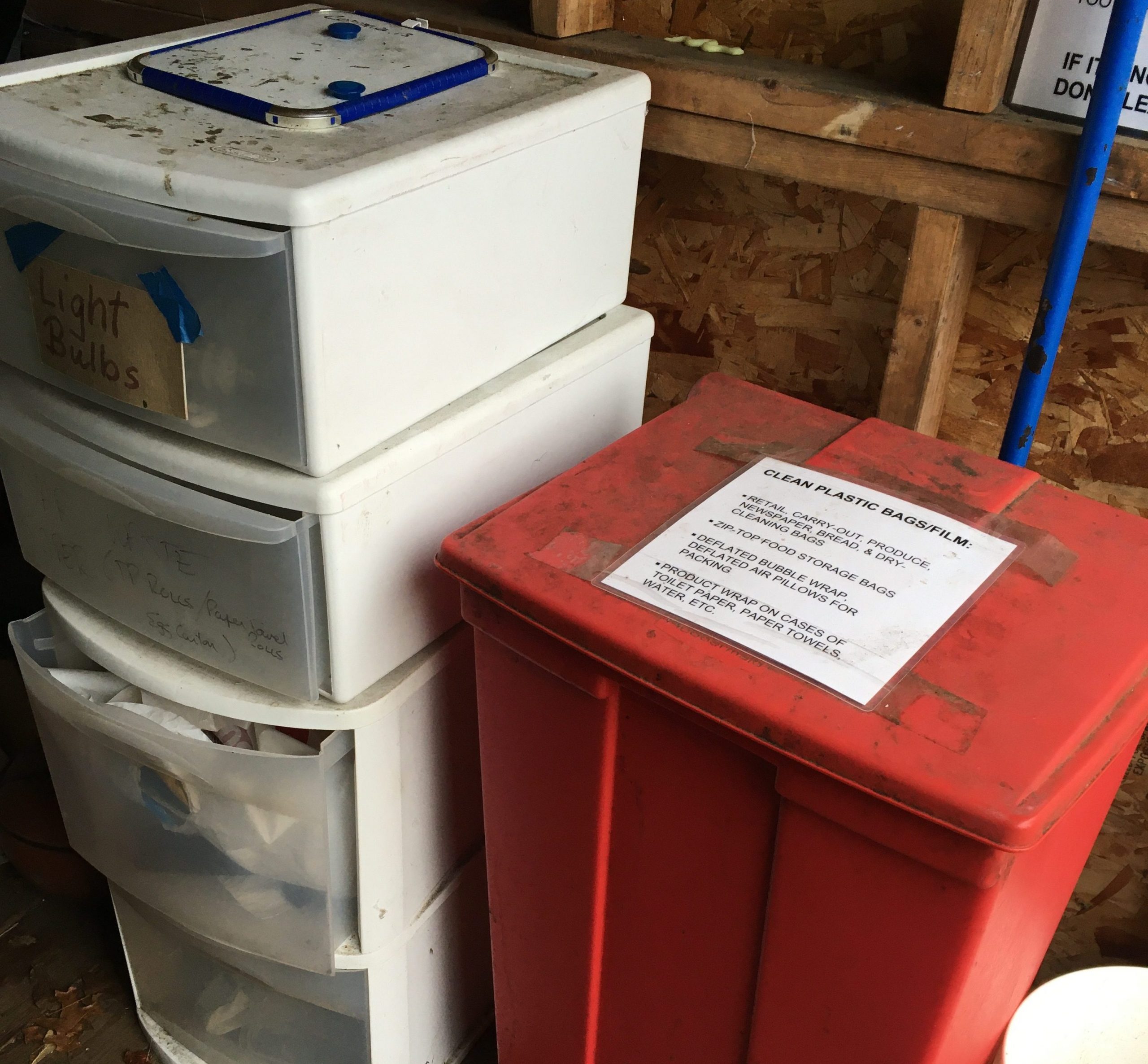For most communities the starting point for recycling is to tap into the standard program for their municipality. This may mean taking advantage of a city program or paying for a add on to trash service.
Communities sometimes support recycling by listing acceptable items on their websites, bulletin boards, or community information documents. Neighbors may post gentle reminders when non-recyclables are found in recycling containers or recyclables are found in the trash.
*********
For items that aren’t picked up by a local service, the next tier is often a nearby recycling center that accepts a wider variety of recyclable items. These might include plastic bags, styrofoam, electronics, light bulbs and more. Sometimes one large center collects many items, other times each item is delivered to a business that accepts that particular recyclable item. Collecting them in one place in the community with a volunteer responsible for each location increases participation in these programs and decreases the number of trips.

Many communities have compost available on site, perhaps managed by a garden committee or chicken team. Others may arrange for a composting service for food scraps. The primary challenge with these programs is clarity about what can and cannot be composted, which will depend in large part on the composting system used.
Many things can be recycled by mail, and collecting them as a community makes the process more efficient and convenient. These items range from crayons to toothpaste tubes. A quick internet search will reveal options for paid and free programs. Most often in community, one member discovers a particular program and collects that item for the community.
This may be our favorite category of recycling that you just don’t see outside of cohousing. Along with bins for standard recyclables, PDX Commons adds a big for “Aspriational Recycling” where you can put items that you hope can be recycled, but aren’t sure. Certainly some of these items still end up in the trash, but the recycling gurus take a look first and recycle what they can.

In states like Oregon and Vermont that have beverage container deposit laws, it might seem that each community member would choose to recycle their own containers to claim their deposits. Some communities, however, share this work as well, collecting all the deposit items to return in batches and using the returned deposits to fund happy hour snacks or similar.
